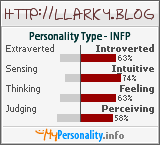High Education or Intelligence
Better educated people are well known to perform better on dementia
screening tests like the Mini-Mental State Examination. However, there is
controversy about whether these people are protected against AD and other
dementing diseases or whether they are simply better at doing cognitive
tests. Several studies have found that better educated people have a lower
incidence of AD or cognitive decline, but this is not a universal finding [95±
97]. One hypothesis is that education does not protect against Alzheimer
brain changes, but rather allows the individual to compensate better for the
effects of these changes [98]. In other words, better educated persons can
tolerate greater loss of brain cells before they begin to show the effects of
dementia in their everyday behaviour. There is some evidence to support
this hypothesis [99]. Because education is correlated with intelligence, it
could be pre-morbid intelligence rather than education that is protective.
For example, one longitudinal study has found that pre-morbid intelligence
is a better predictor of dementia than education [100]. While the evidence on
education and pre-morbid intelligence is generally interpreted in terms of
compensation for brain pathology, a recent study of AD in American nuns
went further to suggest that higher verbal ability in early adulthood actually
protects against AD processes in old age [101]. Verbal ability was assessed
from samples of writing that the nuns had made as young adults. Among
the nuns who died and came to autopsy, all of those with confirmed AD had
low verbal ability, compared to none of those without the disease. Any
protective effects of education or intelligence could be mediated by brain
reserve [102]. Intelligence is known to be correlated with brain size, and
individuals who have a larger brain or head size appear to have reduced
risk of dementia.
Dementia 2nd ed
jueves, 6 de mayo de 2010
Suscribirse a:
Enviar comentarios (Atom)

No hay comentarios:
Publicar un comentario